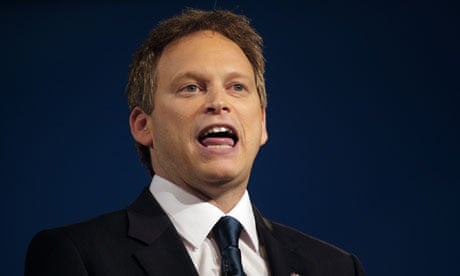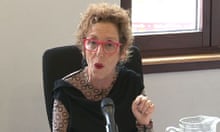Wednesday morning's Today programme featured interviews with both the UN special rapporteur on the right to adequate housing, Raquel Rolnik, and Tory chairman Greg Shapps. Rolnik was being interviewed about her visit to the UK, which had ended with her issuing a press statement. Shapps described the statement (which he mistakenly termed a "report") as "an absolute disgrace", stating that he could "confirm that [the visit] was not something that was confirmed by the government, a minister" and that he would be writing to the UN secretary general "to ask for an apology and an investigation into how this came about".
Unfortunately, Shapps' comments contained a number of apparent inaccuracies. Let's review the facts.
A UN special rapporteur cannot carry out a mission (ie a formal visit) to a state without being invited. This is set out in the code of conduct for such appointment-holders (also known as "special procedures"). Indeed, so open was the UK to the possibility of a visit from UN experts like Rolnik that, in March 2001, it issued a standing invitation to all such UN appointment-holders. By extending a standing invitation, the UK announced that it will always accept requests to visit from all special procedures. This is an admirable step to have taken, signalling a commendable willingness on the part of the UK to open up the implementation of human rights in this country to independent scrutiny.
Further evidence of the UK's willingness to promote the activities of the special rapporteur is provided by the fact that, as recently as 2010, the UK was one of the nations that agreed by consensus that the UN special rapporteur should be able to "identify best practices as well as challenges and obstacles to the full realisation of the right to adequate housing, and identify protection gaps in this regard".
So, the government knew Rolnik was coming – it invited her. And, according to Rolnik's press statement, she met with "numerous government officials, including some ministers". (Indeed, in a subsequent interview with the BBC, she stated that more than half of her time on the visit was spent "with officials, with government"). The government knew that Rolnik's mandate was to highlight "best practices" and "obstacles" in terms of ensuring the enjoyment of the right to housing.
On that basis, it is surprising that the immediate response of the government (courtesy of Shapps) was that:
"It is completely wrong and an abuse of the process for somebody to come over, to fail to meet with government ministers, to fail to meet with the department responsible, to produce a press release two weeks after coming, even though the report is not due out until next spring, and even to fail to refer to the policy properly throughout the report."
This is despite the fact that there was no abuse of process. Rolnik did not simply "come over". She didn't fail to meet with government ministers. She prefixed "so-called" to her first use of the "bedroom tax". (And, indeed, apologised on Wednesday afternoon for employing that term, explaining she did so because "everybody" had used this expression when discussing the policy with her since her arrival in the UK).
Furthermore, complaints about Rolnik's failure to meet face-to-face with the ministers responsible for welfare and housing – and hence an alleged lack of balance in her statement – seem somewhat ironic and misplaced, given that it was the government who did not act on her pre-visit request for those meetings.
It is a well-established practice for UN special procedures to make a statement at the end of their visits to countries and for such statements to include "preliminary recommendations" with regard to law and policy in the host state. It is also well-established practice for the report on a country visit to be released some time after that visit has ended. Indeed, this is both desirable and unavoidable given that the final report will be much longer (roughly 10,000 words) and far more detailed than the press statement. What Rolnik did yesterday was provide "preliminary remarks".
Shapps will be glad to hear that there is a code of conduct against which the special rapporteur's behaviour can be assessed for independence and impartiality. He will be disappointed, however, to find that it is highly unlikely that either Rolnik's visit or statement have fallen foul of it.
But what did Rolnik actually say to induce such a hysterically defensive reaction on the part of Shapps? In her end-of-mission press statement, Rolnik praised the UK's record on housing, stating that "the United Kingdom has much to be proud of in the provision of affordable housing". Among other positive comments, she highlighted the UK's "history of ensuring that low-income households are not obliged to cope with insecure tenure and poor housing conditions, and can be well-housed". She then made an "initial recommendation" about a number of issues – all of which have been highlighted by UK media, politicians and advocates working on housing related matters: (1) the bedroom tax (2) regulation of the private rent sector and (3) social housing stock. She also expressed concern about the impact of welfare reform and austerity measures on the most vulnerable and highlighted that she had seen signs of steps backwards (which she termed "retrogression") in the enjoyment of the right to adequate housing.
The special rapporteur's full report on her mission will be presented to the UN in October. It is to be hoped that Shapps et al will redeem themselves by engaging with its findings in a substantive, thoughtful way. Such behaviour would contrast sharply with yesterday's pugilistic media posturing (with more than a hint of racism) about that "woman from Brazil" and her "disgrace" of a statement.



